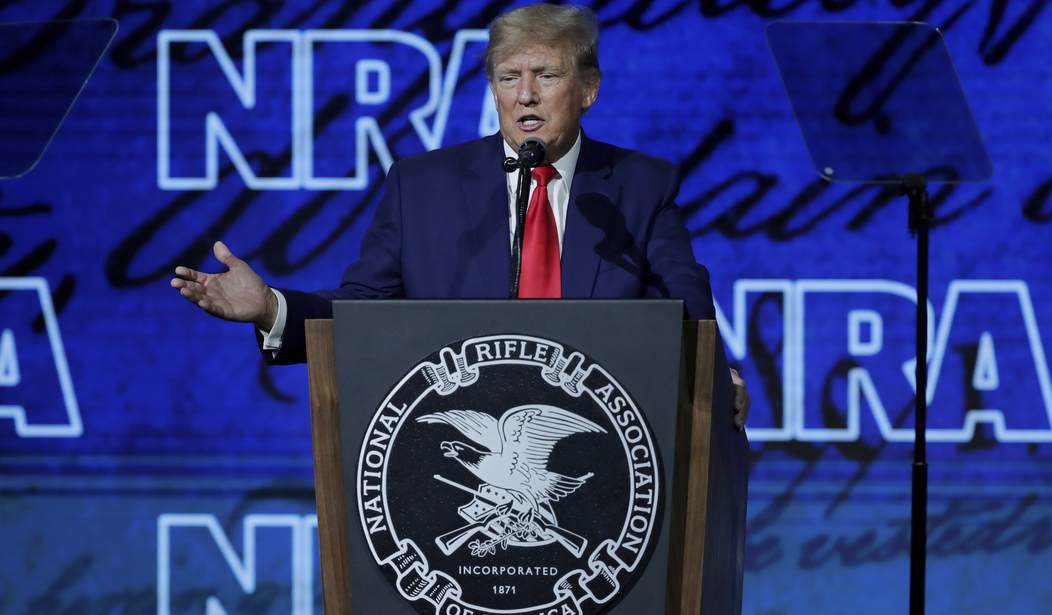The National Rifle Association won an important First Amendment case at the Supreme Court that has wide-ranging implications for advocacy groups.
The NRA brought suit against Maria Vullo, the former superintendent of the New York State Department of Financial Services, for using her power to force insurance companies and banks not to do business with the group.
Following the Parkland School shooting in 2018, Vullo met with Lloyd's of London, during which the NRA claims she offered not to prosecute other violations as long as Lloyd's helped with her vendetta against gun groups.
Vullo was a former member of former Gov. Andrew Cuomo’s administration and claims she was only targeting policies that were illegal in New York.
The NRA's suit against Vullo can now proceed on a First Amendment basis.
The decision by the normally divided Supreme Court was unanimous.
“Government officials cannot attempt to coerce private parties in order to punish or suppress views that the government disfavors,” liberal Justice Sonia Sotomayor wrote.
“Ultimately, the critical takeaway is that the First Amendment prohibits government officials from wielding their power selectively to punish or suppress speech,” she added.
Conservative Justice Neil Gorsuch and liberal Justice Ketanji Brown Jackson penned two separate concurrences in which they said they agreed with the court’s decision.
In her six-page concurrence, Jackson stressed that cases like the one at hand turn heavily on the facts that give rise to the controversy.
“Whether and how government coercion of a third party might violate another party’s First Amendment rights will depend on the facts of the case,” Judge Jackson wrote. “Different circumstances — who is being coerced to do what, and why — may implicate different First Amendment inquiries.”
“Here, the NRA plausibly alleged that Vullo violated the First Amendment by coercing DFS-regulated entities into disassociating with the NRA in order to punish or suppress gun-promotion advocacy,” Sotomayor wrote.
The "illegal policies" that Vullo claims she was targeting included “Carry Guard” — an NRA-offered insurance program underwritten by Lloyd's and Chubb Limited. It was dubbed "murder insurance" by its detractors because it covered "personal-injury and criminal-defense costs related to licensed firearm use."
The state of New York ratcheted up its insurance law enforcement efforts after the Valentine’s Day 2018 massacre of 17 students and staffers at Marjory Stoneman Douglas High School in Parkland, steering the insurers towards consent decrees “in which the insurers admitted violations of New York’s insurance law, agreed not to provide any NRA-endorsed insurance programs (even if lawful), and agreed to pay multimillion dollar fines,” the court summarized.
Vullo in April 2018, with the backing of former New York Gov. Andrew Cuomo (D), published “guidance letters” that cited “social backlash” against the NRA over “several recent horrific shootings, including in Parkland, Florida,” urging insurers and banks to sever ties from the NRA in the interest of “public health and safety” or else they could possibly face enforcement actions.
The court heard another First Amendment case at the same time as the NRA case. This was the much-publicized case against social media companies for censoring "misinformation" during the pandemic. That ruling is expected before the end of the term in late June.










Join the conversation as a VIP Member